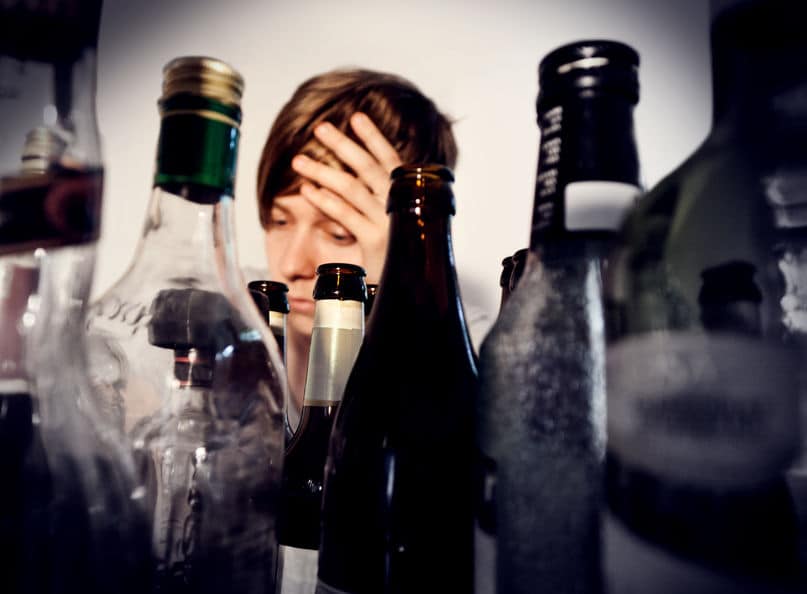
Is Your Kid Addicted to Alcohol?
December 7, 2017
For teens, using alcohol typically starts through social pressure. They want to fit in with and be accepted by their peer group, so they start drinking. However, drinking alcohol on a regular basis can have dramatic effects on teens. It can affect their health and overall sense of well-being, lead to behavioral problems, and cause poor academic performance.
If your teen is struggling with alcohol addiction, they aren’t likely to broadcast it to you. Instead, they’ll try to hide it from you or avoid you entirely so that you don’t seem aware of their alcoholism. As a parent, you should be perceptive enough to understand when your child is not being themselves and signs of substance abuse. These are some signs that your kid might be addicted to alcohol.
Underage drinking might start as a way for teens to have fun, but it can soon become the only possible way for them to have fun. If your kid is feeling particularly stressed, they might not want to tell you. Instead, they might take refuge in drinking. While they might not be drinking around you, their body language and overall demeanor can give you hints as to how they’re feeling. They might look unwell and seem like their mind is elsewhere when you try to speak to them.
Teen alcohol addiction can cause them to act in a particularly secretive manner. When you ask them questions such as what they’ve been doing (either with friends or without), they’re liable to become defensive or hostile. They don’t want to admit to dealing with a drinking problem and will look towards avoidant and antisocial behaviors to try and deflect attention. If you bring up alcohol and they seem uncomfortable and wanting to end the conversation immediately, you can strongly suspect they’re struggling with a drinking problem.
 You don’t have to ask your teen about alcohol use or see any alcohol containers to have strong suspicions of them drinking. Memory retention can be greatly affected by alcohol use, and you have reason to be suspicious of them drinking. Their grades are another telltale sign of substance abuse. If their grades are on a noticeable downward slide, it could be due to drinking. You should also get in touch with your teen’s teachers and ask them how they are acting in class. If they are inattentive, don’t complete their work, or are frequently absent, you have reason to be concerned.
You don’t have to ask your teen about alcohol use or see any alcohol containers to have strong suspicions of them drinking. Memory retention can be greatly affected by alcohol use, and you have reason to be suspicious of them drinking. Their grades are another telltale sign of substance abuse. If their grades are on a noticeable downward slide, it could be due to drinking. You should also get in touch with your teen’s teachers and ask them how they are acting in class. If they are inattentive, don’t complete their work, or are frequently absent, you have reason to be concerned.
While teens are understandably working to assert their independence as they transition into adulthood, a teen struggling with alcohol addiction might be all-too reluctant to make you aware of any sort of issue. They’ll spend time out with friends extensively, potentially getting themselves into precarious situations in the process. If they are concerned about their drinking, they might think that it’s something they need to deal with in private, because they think they wouldn’t be able to face you comfortably.
Drinking is often a cause of problems, but it can also be an effect of them. When considering alcohol addiction in teens, you need to consider what could be leading to them using alcohol. They might be struggling with mental illness, such as anxiety or depression. They might also be feeling academic pressures and see drinking as a way to achieve some momentary relief. The problem, of course, is that drinking as a solution is only temporary. It can backfire on them the more they depend upon it. When alcohol no longer has its desired effects, teens are at risk for taking part in more harmful substances.
There is hope for teens struggling with alcohol addiction. Resources are available so that your teen and you can work through their addiction. Counseling programs can let your teen discuss their struggle with professionals. Though they might be reluctant to talk about their alcoholism, they can feel better knowing about confidentiality. Inpatient treatment is something that should be strongly considered, particularly if your teen has a rather deep addiction they’re dealing with. Inpatient treatment facilities give your teen the chance to focus solely on their recovery so that they can return to their regular life renewed and ready to face the world, away from alcohol
Alcohol addiction is difficult for both teens and their parents to deal with. In order to help your teen with their addiction, you need to show your support for them. They’re going through a tremendously difficult time and need you there for them. At our Hillcrest Adolescent Treatment Center, we provide the resources to help your teen overcome their addiction.

